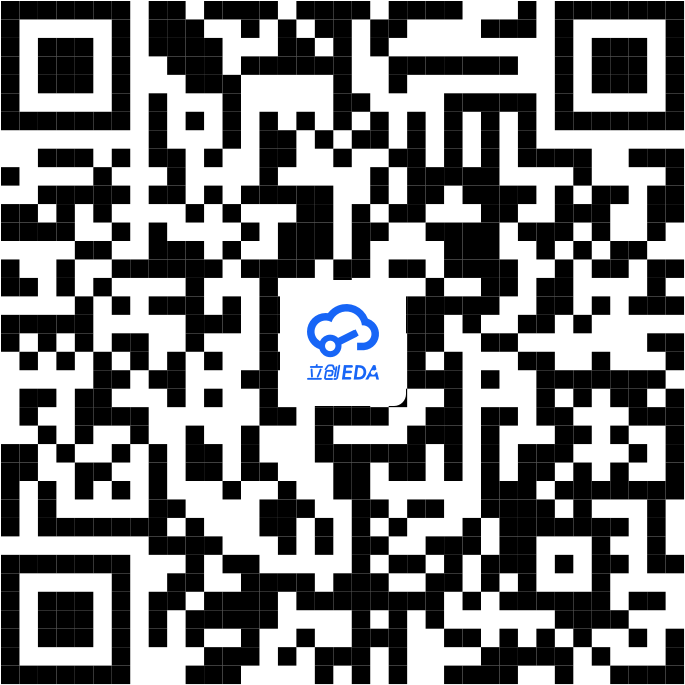© 2024 EasyEDA Some rights reserved ISO/IEC
Editor Version
×
Standard


1.Easy to use and quick to get started
2.The process supports design scales of 300 devices or 1000 pads
3.Supports simple circuit simulation
4.For students, teachers, creators
Profession


1.Brand new interactions and interfaces
2.Smooth support for design sizes of over 5,000 devices or 10,000 pads
3.More rigorous design constraints, more standardized processes
4.For enterprises, more professional users

Ongoing
STD Cyber Surveillance
License: Public Domain
Mode: Editors' pick
- 0
Update time:
2019-11-11 12:16:59
Creation time:
2019-11-11 12:16:59
Description

Connecting computer systems into large-scale networks opens up unprecedented possibilities for remote access to distributed resources and data sharing between users who may be located in different parts of the world. However, every medal has two sides. Because of increasing information interchange, the problem of privacy in cyberspace has been raised. Every day, large companies and governments of different countries collect petabytes of data of their citizens or users. All this activity is performed under the auspices of national security or improving services for the end-users. At the same time, large organizations fighting for digital rights provide arguments against global surveillance policies. As information technologies became an integral part of people’s lives, these problems concern everyone who uses global information systems. This paper will consider the main initiators of such activity and provide arguments for why conducting such large-scale data collection should not be allowed.
The very first source of surveillance in cyberspace is state authorities. Advanced actions in this sphere are often explained as important ones to provide protection against external and internal enemies. Governments of many countries constantly try to legalize their right to collect this data. A striking example is the [Cybersecurity Information Sharing Act](https://en.wikipedia.org/wiki/Cybersecurity_Information_Sharing_Act) (CISA) that has been advanced by the United States Senate recently. According to the Electronic Frontier Foundation (EFF), which is an international digital rights organization, it is serious threat to the privacy of each U.S. citizen (Mark Jaycox, 2015). The Act actually legitimizes extensive data collection system and allows private companies to take countermeasures against violators of their security. Such measures may lead to increase in the number of Internet attacks (Mark Jaycox, 2015). The general problem of big data investigation is that it comes with a serious amount of redundant information regarding many citizens not related to national security. Using rational approach, it should be destroyed. However, according to Schneier (2015), there are many examples of using this data to defeat political opponents by governments of many countries, such as during the events of 2014 Ukrainian revolution or the conflict in Syria. In both cases, authorities used their possibility to intercept conversations and locate people communicating by phone or social networks. Thus, even if the current government can be trusted, there is no guarantee that the successors will not use these capabilities to fight their opponents. Another threat to be considered is possible security breaches resulting in serious data leakages (Schneier, 2015). If the state takes action on collecting the data, it should be able to provide appropriate security measures, which often is not of primary concern. All these facts show the dangers that global monitoring systems bring to society.
Other initiators of global observation are large companies that need to collect information about their products usage to improve the quality of service or provide relevant targeted advertising. Again, in this case, companies often collect too much data. The benefits that such collecting brings to the customers are not comparable to the amount of personal information they voluntarily disclose. Even if the company uses this data for the declared purposes only, no one cannot be certain that the company will not forward this data to third persons. According to Carla (2015), the new operating system Windows 10 includes powerful means for spying on its users, including the capability to send user input to remote Microsoft servers. It clearly explains the scale of data collection conducted by giant software companies. Furthermore, despite the state authorities must provide meticulous data security measures by law, big players of the IT market are often not interested in implementing special measures to protect information. As Google Chief Internet Evangelist Vint Cerf stated:
“We couldn’t run our system if everything in it was encrypted because then we wouldn’t know which ads to show you.” (Soghoian, 2011)
Another important factor, social in nature, is the psychological effects caused by lack of privacy online. The concept of private space plays an important role in our lives. A human has to control what to share with others and what not. According to Ian Brown,
“If new surveillance technologies do not come with adequate privacy features, this disclosure control will be damaged. This could erode social ties and potentially contribute to family breakdowns and fewer quality relationships.” Ian Brown (2013)
Even stronger emotional stress could be caused when personal information is used with bad intentions, such as dignity insult, blackmail or even identity theft. The very idea that one has to watch each step to avoid unwanted disclosure of private data can lead to stress and undermine the trust in new technologies. That is why there is an exigency to keep human rights immutable, even in cyberspace.
Further development of the Internet also increases the number of persons who do not mind taking advantage of the rich information resources that only grow day by day. Each party in the field of IT primarily follows its own interests. Over time, it may reveal that declared mission was just a trick that distracted attention from opposite goals and intentions. If not stopped on time, it will lead to completely uncontrolled cyberspace, where everyone has access to every piece of information. Thus, society has to make government prohibit such large-scale surveillance because the benefits it promises are not worthy of adverse changes occurring in the global network.
If this article appealed to you, proceed to read other cognitive posts on [prime essay writings](https://superessay.org/prime-essay-writing-service.html).
Design Drawing
schematic diagram
(
1
/
)
PCB
(
1
/
)
The preview image was not generated, please save it again in the
editor.
BOM
Project Members
Related Projects
Change a batch
Loading...
Add to album
×
Loading...
reminder
×
Do you need to add this project to the album?








